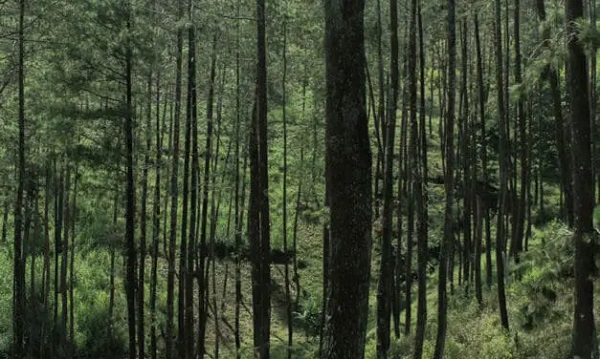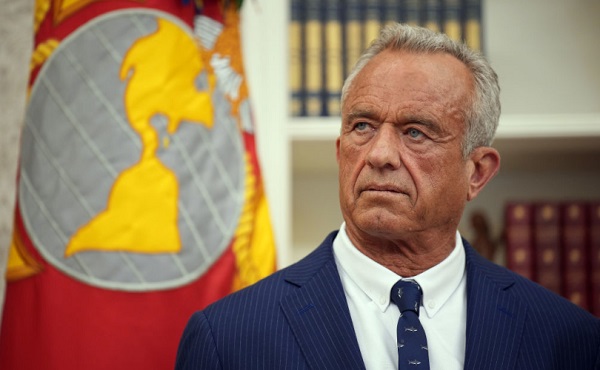Alberta
Boreal forests could hold the key to achieving Canada’s climate goals

This article supplied by Troy Media.
 By Science and Technology Desk
By Science and Technology Desk
New study finds billions more trees than expected, making boreal forests a bigger carbon sink than we thought
Canada’s boreal forests may be far more resilient to climate change than previously believed, with new research showing they contain billions more trees than past estimates, potentially boosting Canada’s natural defences in the fight against global warming.
Spanning from Yukon to Newfoundland, the boreal forest is one of the largest intact ecosystems in the world. It plays a crucial role in absorbing carbon dioxide, protecting biodiversity and supporting Indigenous and rural communities.
A new University of Alberta study provided the most accurate estimate to date of how many trees populate the boreal region, reducing long-standing uncertainties in forest carbon modelling and management.
The result: 277 billion trees across the boreal zone, including 30 billion in Alberta—31 per cent more than estimated in a major 2015 global study.
“Our research provides by far the most accurate and credible answer to the question of how many trees are in our boreal forests,” said study lead Fangliang He, a forest ecologist and Canada Research Chair in Biodiversity and Landscape Modelling.
“Knowing that there are 31 per cent more trees than previously estimated suggests our boreal forests have greater capacity to mitigate climate change.”
Tree counts like this help scientists and policymakers understand how much carbon forests can absorb and store, critical for estimating how large a role boreal ecosystems can play in national emissions strategies.
To improve on the earlier global estimate, He’s team compiled data from a record 4,367 tree plots across Canada and Alaska, compared with just 346 used in the 2015 study.
“This provides a large set of data with extensive geographic coverage in North America,” He said.
To measure trees 10 centimetres or larger in diameter—the same threshold used in the 2015 analysis—He and his team used an artificial intelligence algorithm to develop competition-based models that included tree height, a key indicator of forest competition. The use of AI allowed the researchers to detect patterns that traditional methods might miss.
“These innovative models represent a major advance in improving the accuracy of estimating tree count.”
The researchers also projected future tree density under a range of climate scenarios to see how the boreal forest might respond to a warming planet. The findings were surprising: under increasingly warmer conditions, tree density in the boreal forest would rise overall by at least 11 per cent by 2050.
“This result suggests that boreal forests might be more resilient to climate change than we thought,” He said.
The study, he added, underscores the need for better data and forecasting tools to support forest management and climate policy.
While the federal government has pledged to plant two billion trees by 2030, He said that effort is nowhere near enough.
“That number only accounts for 0.83 per cent of our estimated total number of 240 billion boreal trees in Canada, speaking to the mitigation challenge through tree-planting,” he said.
At current planting rates, he said, it would take centuries to match the natural regeneration and density needed to make a measurable impact.
“Protection of natural forests is the best nature-based solution.”
The study contributes to a growing body of research using artificial intelligence to model complex ecological systems, and could influence Canada’s future forestry and climate strategies.
Science and Technology Desk
Troy Media empowers Canadian community news outlets by providing independent, insightful analysis and commentary. Our mission is to support local media in helping Canadians stay informed and engaged by delivering reliable content that strengthens community connections and deepens understanding across the country
Alberta
Tell the Province what you think about 120 km/h speed limit on divided highways

Alberta’s government is engaging with Albertans on increasing speed limits on rural highways.
Starting Nov. 7, Albertans can share their views on modernizing speed limits on divided highways through an online survey running until Dec. 12. The survey will ask how Albertans view raising the speed limit by 10 km/h on various highways from 110 km/h to 120 km/h.
“Alberta’s government is investigating how to safely increase speed limits on divided highways, and if Albertans support increasing speed limits. We are investing more than $1.5 billion this year alone to improve highway safety and upgrade infrastructure across the province. We want Albertans to be able to drive the speed limit that the highways are designed for. Modern vehicles combined with public awareness mean we can explore higher speed limits.”
The survey will provide Albertans with the opportunity to provide input on which highways they would prioritize having a speed limit increase, their views on restricting commercial trucks from using the far-left lane on highways with three or more lanes and any other feedback that would improve driving experiences on provincial highways.
Following a review of the survey results, Alberta’s government plans to conduct a mini-trial of a 120 km/h speed limit to assess the impacts of higher speed limits on divided highways. The trial will include strong monitoring to assess driving behaviour.
Alberta’s government reminds motorists to slow down and drive to the conditions. Speed limits are set for ideal conditions. When roads are wet, icy or when there is reduced visibility, motorists should slow down.
Quick facts
- Alberta’s provincial highway network includes more than 64,000 lane kilometres of highways, about 11,700 lane kilometres of which are divided.
- The posted speed limits of Alberta’s divided highways range from 100 to 110 km/h, although the posted speed limits on segments passing through cities, towns and First Nation lands can be as low as 50 km/h due to factors such as signalized intersections, pedestrians and local access.
Related information
- The survey is available online.
Alberta
Alberta Announces Members of Class Size and Complexity Committee

A new Class Size and Complexity Cabinet Committee has been struck to address classroom challenges.
Taking action on class size and complexity
Classrooms in Alberta continue to grow and are becoming increasingly complex, and immediate action is needed to address these issues in the public education system. To meet these issues head on, the Class Size and Complexity Cabinet Committee has been created. The cabinet committee will help guide government policy and deploy resources to deal with class sizes and classroom complexity.
“We are committed to providing world-class education, and we’re building schools and funding education at a rate unprecedented in this province. This committee will help us address the concerns of teachers, parents and students around class sizes and complexity.”
Throughout November, Alberta’s government will continue work with school boards to collect data on class sizes and classroom composition. The cabinet committee will use this data to direct resources to the classrooms that need it the most. Starting in January, this data will be made available and released annually.
The Class Size and Complexity Cabinet Committee will be co-chaired by the Premier of Alberta and the Minister of Education and Childcare. It will also include non-voting members representing school boards, administrators and a teacher representative of the ATA. The committee will also hear from school boards, academic experts, teachers, educational assistants, complex needs specialists and parents to inform its decisions and guide this vital work.
“We heard teacher concerns, and we are providing solutions. The Class Size and Complexity Cabinet Committee will help us take immediate action and ensure teachers and students are given the support they need to succeed.”
In June 2025, Alberta’s government established the Aggression and Complexity in Schools Action Team to provide advice on addressing classroom complexity. The report has been received and will be released soon. Over the coming months, the cabinet committee will start rolling out solutions informed by the action team’s recommendations. In addition, the committee will guide the creation of a new inclusive education policy framework.
“The work of this committee will support teachers in responding to the growing complexity in our classrooms. We will ensure that the voices of the contributors to the initial work guide
solutions that truly improve the educational experience for students and the educators who serve them.”
“I appreciate the government’s recognition of the impact of classroom complexity and their commitment to working collaboratively for improvement. Supporting teachers ultimately improves classroom conditions and student outcomes.”
Using data collected, this cabinet committee will also guide Alberta’s government in executing its commitment to hire 3,000 new teachers and 1,500 new educational assistants over the next three years. They will also assist in identifying and prioritizing where new schools and modulars should be built, advancing the government’s commitment to invest $8.6 billion to build 130 new schools, and provide 109 modular classrooms in the growing communities that need them urgently.
Quick facts
- Members of the Class Size and Complexity Cabinet Committee include:
- Danielle Smith, Premier of Alberta
- Demetrios Nicolaides, Minister of Education and Childcare
- Jason Nixon, Minister of Assisted Living and Social Services
- Rick Wilson, Minister of Mental Health and Addiction
- Searle Turton, Minister of Child and Family Services
- Lynnette Anderson, chief superintendent, Edmonton Catholic Schools
- Nicole Buchanan, chair, Red Deer Public Schools
- Marilyn Dennis, former president of Alberta School Boards Association
- Mike McMann, superintendent, Fort Vermilion Schools and President, College of Alberta School Superintendents
- Joanne Pitman, chief superintendent, Calgary Board of Education
- Dr. Elissa Corsi, Alberta Teachers’ Association
- Only Cabinet members are voting members. Additional guests will be invited to attend and share their expertise at the discretion of the chairs.
- School boards will be required to submit data on Alberta classrooms by Nov. 24.
-

 Alberta2 days ago
Alberta2 days agoTell the Province what you think about 120 km/h speed limit on divided highways
-

 Energy1 day ago
Energy1 day agoThawing the freeze on oil and gas development in Treaty 8 territory
-

 National1 day ago
National1 day agoNew Canadian bill would punish those who deny residential indigenous schools deaths claims
-

 Alberta2 days ago
Alberta2 days agoAlberta’s number of inactive wells trending downward
-

 Censorship Industrial Complex2 days ago
Censorship Industrial Complex2 days agoSchool Cannot Force Students To Use Preferred Pronouns, US Federal Court Rules
-

 armed forces2 days ago
armed forces2 days agoThe Liberal Government Just Betrayed Veterans. Again. Right Before Remembrance Day.
-

 Health2 days ago
Health2 days agoRFK Jr. urges global health authorities to remove mercury from all vaccines
-

 Business1 day ago
Business1 day agoWhat Pelosi “earned” after 37 years in power will shock you




